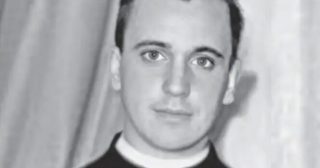Four Texas Law Enforcement Officers Take Their Own Lives in Six Weeks: A Mental Health Crisis in Policing

In a tragic and alarming development, four deputies from the Harris County Sheriff’s Office (HCSO) have taken their own lives in the span of just six weeks. This shocking loss has reignited concerns about mental health and suicide prevention among law enforcement officers and first responders.
The Alarming Suicide Rates Among Law Enforcement Officers
A recent report from the U.S. Fire Administration revealed that between 2015 and 2017, first responders represented 1% of all suicides in the U.S., with 58% of those suicides being law enforcement officers (LEOs). A 2024 study from ABC News highlighted 1,287 suicides among LEOs and correctional officers between 2016 and 2022, underscoring the devastating toll the job takes on officers’ mental well-being. More than half (51%) of these suicides involved officers from local police departments, while 20% came from sheriff’s offices. Tragically, four more officers have added to these statistics in just over a month.

Here’s what we know about the recent deaths and how the HCSO is responding to this growing mental health crisis.
HCSO Deputy Christina Kohler Found Dead After Missing
On March 13, authorities issued a Houston Regional CLEAR Alert for 37-year-old HCSO Deputy Christina Kohler, who had been missing since March 12. The alert stated that Kohler posed a "credible threat to her own health and safety."
Sadly, it was confirmed that Kohler passed away on the same day she was reported missing. In a statement, Constable Mark Herman paid tribute to her, saying, “Her name, her life, absolutely deserves to be remembered for her commitment to our profession.”
Kohler had been with the Harris County Sheriff’s Office since 2018, most recently serving as a bailiff in the 182nd District Court, according to The Houston Chronicle.

Former Deputy Maria Vasquez Dies by Suicide
Just days after Kohler’s death, it was confirmed that Maria Vasquez, a former deputy, also took her own life. Vasquez, 42, had left the department in December 2024. Her body was found at her home in Houston’s Almeda Genoa Road area.
The HCSO Community Engagement Division honored both Kohler and Vasquez in a heartfelt Facebook post, writing: “Heaven has gained two beautiful angels. May their memory be a blessing, inspiring strength and comfort to their friends, family, and coworkers during this challenging time.”
Two Additional Former Deputies Die by Suicide
In the wake of Kohler and Vasquez’s deaths, two other former HCSO deputies have also tragically passed under similar circumstances.
William Bozeman, a former HCSO deputy, is reported to have died by suicide in the past few weeks. Additionally, 58-year-old Long Nguyen, another former deputy, died by suicide on February 26.
The Mental Health Crisis Facing Law Enforcement: Experts Speak Out
Dr. Ron Acierno, Director of the Trauma and Resilience Center at UTHealth Houston, has spoken out about the mental health crisis facing law enforcement officers. He emphasized the stigma surrounding mental health care in the police community, saying, “Much like the veteran community and active-duty military, there's a belief that officers should 'tough it out.' Some officers don't realize help is available, while others fear it won’t work.”
Dr. Thomas McNeese, Director of HCSO's Behavioral Health Division, acknowledged the toll the job takes on officers. He stressed the importance of seeking help, stating, “Reaching out, getting support, and not staying stuck is crucial.”
HCSO's Efforts to Address the Mental Health Crisis
In response to the recent tragedies, the Harris County Sheriff’s Office has reaffirmed its commitment to providing comprehensive mental health support for its officers. The department has implemented mental health and peer support services, which include confidential counseling and access to specialized resources for law enforcement officers.
A spokesperson for the HCSO shared condolences, stating, “The Sheriff’s Office is grateful for the community’s prayers and support and offers our deepest sympathies to Deputy Kohler’s family.”
Constable Sherman Eagleton made a powerful plea for officers in need of support: “You are needed, and you matter, even when you feel your lowest. To our brothers and sisters in blue—take care of each other. Don’t carry the burden alone. Your family is here for you.”
The Call for Improved Mental Health Resources in Law Enforcement
The deaths of these four deputies have placed a spotlight on the urgent need for improved mental health resources for first responders. Jose Lopez, President of the Harris County Deputies Organization, echoed this sentiment, noting the growing need for better mental health services within the department.
Dr. McNeese highlighted the need for ongoing support and resources, acknowledging that the Behavioral Health Division is currently understaffed to meet the increasing demand for mental health services. However, he expressed hope that by breaking down the stigma around seeking help, officers can feel more comfortable accessing the support they need.
Moving Forward: Breaking the Stigma and Supporting Law Enforcement Officers
The tragic deaths of these deputies have underscored the importance of destigmatizing mental health care in law enforcement. As conversations about mental health continue to evolve within the HCSO and beyond, experts stress the need to encourage officers to seek help and support without fear of judgment or professional repercussions.
If you or someone you know is struggling, help is available. In the U.S., you can contact the National Suicide Prevention Lifeline at 988 for free, confidential support 24/7.
Key Takeaways: Addressing Mental Health in Law Enforcement
-
Law enforcement officers are facing a mental health crisis, with high suicide rates among both active and retired officers.
-
Recent suicides of HCSO deputies have highlighted the urgent need for better mental health support for first responders.
HCSO is actively working to provide resources, support, and a safe environment for officers to seek help without fear of judgment.
Experts are advocating for a shift in the culture of law enforcement to destigmatize seeking mental health treatment.
Conclusion
The recent loss of four HCSO deputies brings to light the growing mental health challenges faced by law enforcement officers. As efforts to improve mental health resources continue, it’s crucial that officers are supported and encouraged to seek help. Breaking the stigma surrounding mental health care is key to ensuring the well-being of those who protect and serve our communities.










